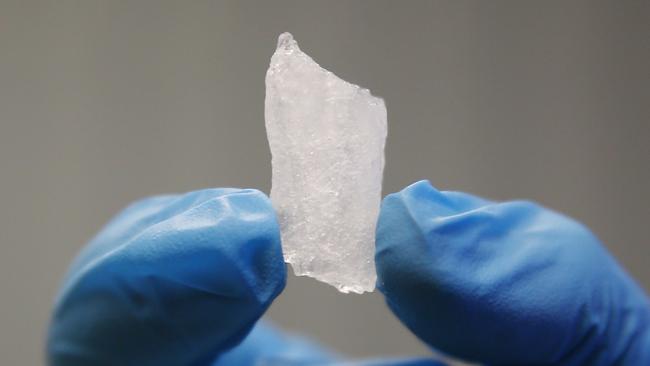The number of people using ice is increasing across the Moreton Bay region
ICE is a growing issue for southeast Queensland police and health workers but the State Government says its Action on ice plan will offer new ways to tackle the problem.

Moreton
Don't miss out on the headlines from Moreton. Followed categories will be added to My News.
ICE is a growing issue for Moreton police and health workers but the State Government says its Action on ice plan will provide improved ways to tackle the problem.
The highly-addictive drug is the crystalline form of methamphetamine.
Between 2009/10 to 2014/15, the number of methamphetamine-related hospital admissions rose 13-fold, from 3.6 per cent to 52.8 per cent per 100,000 persons across Queensland.
The plan was put together after a statewide consultation with the community, frontline staff, people living with ice users and experts.
Moreton Police District Superintendent Michael Brady said ice use was increasing across the region.
“The use and distribution of ice is linked to several types of crimes, ranging from disorderly and anti-social behaviour to robberies, car stealing, driving offences and we are seeing an increase of drug use in domestic violence,” Supt Brady said.
Supt Brady said the problem was not restricted to, or worse in, any particular part of the region.
He said the district dedicated a “considerable” amount of resources to combat the sale, distribution and use of ice.
“I’ve always said combating illicit drugs is a whole-of-community issue and police can only achieve their best results with the assistance and co-operation of the general public,” he said.
A Metro North Hospital and Health Service spokeswoman said ice was a “growing scourge” across the state.
She said people with an ice addiction could recover.
“We welcome the government’s commitment to tackle this issue by providing funding to vital services, such as the Drug and Alcohol Brief Intervention Team located in several hospitals throughout Queensland,” she said.
There are dedicated consultation liaison nurses stationed at the Caboolture, Redcliffe and Prince Charles hospitals for patients with drug-related issues.


